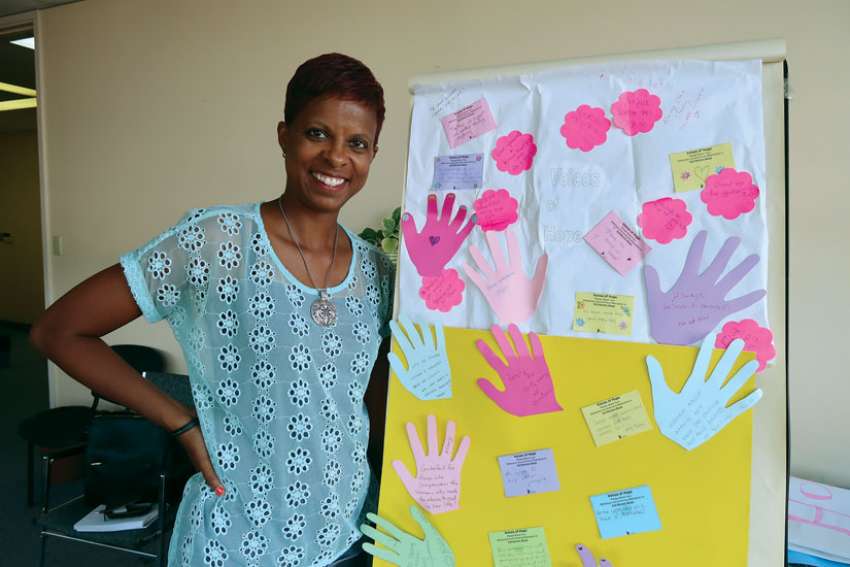Since September, Soares and Catholic Family Services (CFS) Toronto has been working in partnership with the Toronto Catholic District School Board (TCDSB) to bring domestic and dating violence prevention workshops to high schools across the city.
“Initially, (the workshops) focused more on the North York area and slightly outside our area and now it kind of just broadened,” said Soares. “I can be in Etobicoke in the morning and Scarborough in the afternoon.”
Soares has facilitated 27 workshops in nine high schools since September. By comparison, she conducted 19 workshops in eight high schools for the entire 2015-16 school year.
Before the partnership with the school board, Soares had been holding the workshops as part of CFS Toronto’s community outreach.
Soares said the growing interest shows that the school board is making issues of domestic abuse a priority.
“The social workers and the schools are actually really seeing this as a priority and making sure that they find the time (for these workshops),” she said. “I’m also hearing a little bit more that ‘we’re talking a little bit more about this topic in health class’ or ‘we’re talking more about boundaries in a religion class.’ I’m happy to hear that the school is seeing it as important to the regular curriculum.”
According to a 2008 study by Statistics Canada, dating violence is highest among the 15-24 age group, making up 43 per cent of all dating violence reported to police. Sixty-two per cent of youth ages 11-14 who have been in a relationship say they know friends who have been verbally abused.
Despite these statistics, Soares said CFS Toronto barely saw these young people access their services. Time and time again, Soares and other CFS staff would hear women from the Women Helping Women peer counselling program say that they wish they knew the warning signs when they were younger. It was a gap that needed to be bridged.
Although Soares had been conducting versions of the domestic and dating violence prevention workshops in Toronto high schools for many years, it wasn’t until it became an official school board partnership this year that she began to see a tangible shift in awareness.
At the end of each workshop, students are asked to submit anonymous feedback about what they learned. Soares said that reading through the comments has been both interesting and inspiring.
“This presentation woke me up some more and I’ll apply this information in my situations,” wrote one student.
“I learned that there is no excuse for someone to hurt you, mentally or physically. I can use this to protect and guide my future relationships and my friends, as well,” another student commented.
“I will use this because I will make sure that I don’t abuse anyone in the future,” wrote another student.
Looking at case studies seems to be what is most engaging for both the girls and boys participating in the workshops. Soares said the open discussions have led to deeper conversations about unhealthy behaviour and warning signs of abuse.
“Our hope is that it continues to be a priority and that students have access to information long before they put it to use,” said Soares. “And then, of course, we still have the hope of expanding (the program) and have students as ambassadors to work alongside us... planning activities within their own schools and raise awareness around healthy relationships and violence prevention.”


